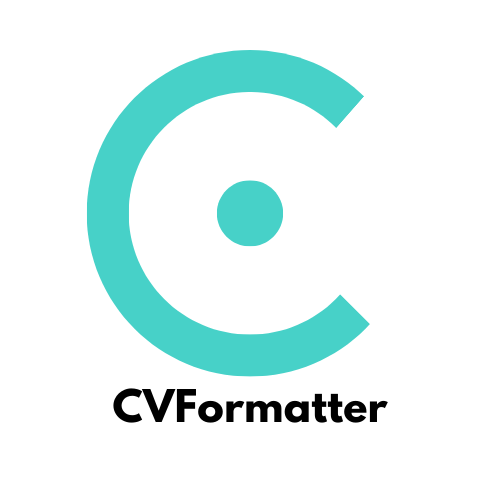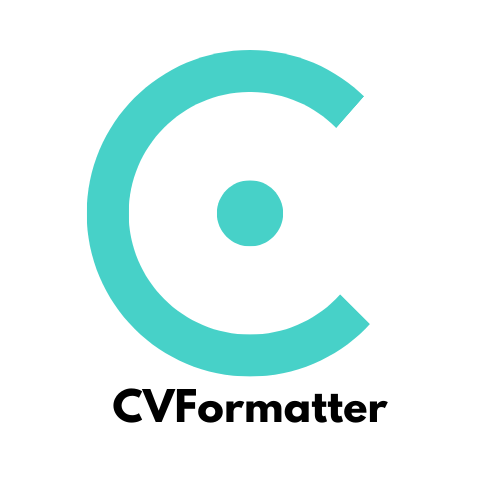10 Advanced Boolean Search Strings for Recruiters

Recruiters today face tough competition to hire the best workers. Boolean Search Strings are a smart way to find candidates faster. They help you discover hidden groups of talented people. Learning advanced methods can improve your search results and save time.
For example, a Web3 gaming company found 4 times more candidates for a Software Developer job using Boolean searches. A carbon-offset startup increased candidate replies by 5% with better search strategies. These examples show how Boolean searches can make hiring easier and boost communication with candidates.
Key Takeaways
Boolean Search Strings help recruiters find people quickly and easily.
Searching with job titles and skills improves results by 30%.
Adding city names or areas helps find hidden local talent.
The NOT operator removes bad matches but use it wisely.
Update your searches often to include new words and trends.
Boolean Search Strings for Passive Candidates
Example String
Here’s a Boolean search string to find passive candidates:
("Software Engineer" OR "Developer") AND ("Java" OR "Python") AND ("GitHub" OR "Portfolio") AND NOT ("actively looking" OR "seeking new opportunities")
This string looks for people with certain job titles and skills. It avoids candidates who are actively searching for jobs.
Use Case: Finding candidates not actively job searching
Passive candidates are about 70% of the workforce. These people aren’t applying for jobs but might consider a good offer. Boolean searches help find them by including or excluding specific words. You can focus on skills or experience while skipping profiles of active job seekers. This method helps you find top candidates who fit your needs.
Boolean searches work well on sites like LinkedIn or GitHub. They let you search through many profiles to find the right ones. This saves time and helps you connect with people who might not show up in regular searches.
Pro Tip: Combine with specific skills for better targeting
Adding skills to job titles in Boolean searches improves results. For example, using "Java" or "Python" finds candidates with those abilities. Studies show this method boosts candidate quality by 30% and saves time by 67%. Recruiters often see better matches, with 25% noticing higher-quality candidates.
To improve your search, include different skill or tool variations. This helps you find more qualified candidates while staying accurate.
Boolean Search Strings for Specific Job Titles
Example String
Here’s a Boolean search string to find candidates with certain job titles:
("Project Manager" OR "Program Manager") AND ("Agile" OR "Scrum") AND ("PMP" OR "Certified")
This string helps locate people with the right titles and certifications.
Use Case: Finding candidates by job title
Recruiters often struggle to find candidates with exact job titles. Boolean Search Strings make it easier to filter profiles. You can include specific titles and related terms. For example, if hiring for project management, use "Project Manager" and "Program Manager." This ensures you don’t miss qualified people with similar titles.
Job titles in the same field can vary. Adding alternative titles helps you find more candidates. For instance, searching for "developer" and "programmer" finds more web developers. This method targets profiles based on skills and experience. It also avoids showing the same profiles repeatedly, giving you a wider range of candidates.
Pro Tip: Add title variations for better results
Job titles differ across industries and companies. To get more results, include synonyms or similar titles in your Boolean strings. For example, "Marketing Specialist" could also be "Marketing Coordinator" or "Brand Strategist." Adding these variations helps you find hidden candidates. Boolean searches work well on LinkedIn and job boards, making them very useful.
Tip: Use both common and unique titles to balance your search.
Insight | |
|---|---|
Free List of Boolean String Examples for Recruiters | Boolean strings help find candidates using specific criteria, improving diversity. |
Boolean Search Builder - Boolean Operators | Boolean searches are key for finding skilled candidates by filtering titles, skills, and experience. |
Boolean Recruiting: A Complete Guide | Boolean tools help attract and pick top candidates using research-based methods. |
Boolean Search Strings for Multiple Skills
Example String
Here’s a Boolean search string to find candidates with many skills:
("Data Scientist" OR "Machine Learning Engineer") AND ("Python" OR "R") AND ("SQL" OR "NoSQL")
This string looks for people with certain job titles and skills.
Use Case: Finding candidates with mixed skills
Recruiters often need workers with different skills for tough jobs. Boolean Search Strings help you narrow down your search. For example, if hiring for data science, combine titles like "Data Scientist" or "Machine Learning Engineer" with skills like Python, R, SQL, or NoSQL. This way, you find people with the right mix of abilities.
Boolean searches are great for sorting through big lists. They help you find people with the skills you need and skip profiles that don’t fit. This saves time and improves the quality of candidates you find.
Pro Tip: Use parentheses to group terms
Parentheses are important in Boolean searches. They group related words so the search works correctly. For example, ("Python" OR "R") AND ("SQL" OR "NoSQL") ensures results include one programming language and one database skill. Without parentheses, the search might not work as well.
Parentheses also help with broader searches. For instance, if looking for anxiety research, use anxiety AND (reasons OR causes OR factors). This finds results with "anxiety" and related words like "reasons" or "causes." It makes searches more accurate and reduces extra results.
Tip: Always check your Boolean strings to match your search goals.
Boolean Search Strings to Remove Unwanted Results
Example String
Here’s a Boolean search string to skip unrelated profiles:
("Software Engineer" OR "Developer") AND ("Java" OR "Python") AND NOT ("Intern" OR "Entry-Level")
This string finds candidates with certain skills and skips junior profiles.
Use Case: Removing profiles that don’t fit
Recruiters often see profiles that don’t match their needs. Boolean Search Strings help by removing terms that aren’t useful. For example, if you need experienced developers, adding NOT ("Intern" OR "Entry-Level") skips junior candidates. This way, you focus only on skilled professionals.
This method saves time and makes hiring faster. Teams using this strategy have cut hiring time by 34%. It also improves candidate quality by skipping irrelevant profiles. You can adjust your search strings to get better results. For example, removing "Entry-Level" might include junior candidates with potential.
Pro Tip: Be careful with the NOT operator
The NOT operator is helpful but needs careful use. Overusing it might remove good candidates. For instance, skipping "Entry-Level" could exclude people with internships or certifications. Test your Boolean strings and tweak them as needed. Trying different options helps you find better matches.
Tip: Use Boolean Search Strings to focus on skills and experience. Adjust your strings to get more accurate results.
Boolean Search Strings for Location-Based Searches

Example String
Here’s a Boolean search string to find candidates by location:
("Software Engineer" OR "Developer") AND ("Java" OR "Python") AND ("New York" OR "Big Apple" OR "NYC")
This string helps find people with certain skills in New York.
Use Case: Finding candidates in specific areas
Recruiters often look for workers in certain places. Boolean searches make this simple by adding location terms. For example, if hiring in New York, use words like "New York," "Big Apple," or "NYC." This way, you find profiles that match these locations.
Some people use unique ways to describe their location. For example, someone in California might say "Silicon Valley" or "NoCal." Others might write "Boston Suburbs" or even use map coordinates. Adding these terms to your search helps you find hidden talent.
Pro Tip: Add different names for locations
To get better results, include many location names. For example, if searching in Los Angeles, add "City of Angels" or "LA." This helps find people who use creative or casual terms for their location. It also ensures you don’t miss skilled candidates.
Tip: Update your search with local slang or nicknames to stay ahead.
Boolean Search Strings for Social Media Platforms
Example String
Here’s a Boolean search string to find candidates on social media:
site:linkedin.com ("Software Engineer" OR "Developer") AND ("Java" OR "Python") AND ("GitHub" OR "Portfolio")
This string looks for LinkedIn profiles of software engineers or developers with skills and portfolios.
Use Case: Using LinkedIn, Twitter, or GitHub
Social media is great for finding skilled workers. LinkedIn, Twitter, and GitHub help connect with professionals. Boolean searches make it easier to find the right people. On LinkedIn, you can look for profiles with job titles, skills, or certifications. GitHub lets you find developers by their projects or coding languages. Twitter helps locate experts sharing industry knowledge.
Boolean searches save time and improve results. For example, you can search for resumes of social media experts using:
(intitle:resume OR intitle:cv) (filetype:pdf OR filetype:doc) “social media specialist” -job -jobs -sample
This string finds resumes while skipping unrelated ones. You can also add terms like "SEO" or "analytics" to find candidates with specific skills.
Pro Tip: Use site-specific tools for better searches
Site-specific tools make searches more accurate. For example, site:linkedin.com shows only LinkedIn profiles. site:github.com focuses on GitHub projects. Adding Boolean terms like "AND," "OR," and "NOT" helps find the best candidates. This method works well for specialized jobs where missing good candidates can hurt hiring.
Tip: Try different keyword combinations to improve your search results.
Boolean Search Strings for Certifications
Example String
Here’s a Boolean search string to find certified candidates:
("AWS Certified Solutions Architect" OR "AWS CSA") AND ("Cloud Engineer" OR "DevOps Engineer") AND ("Python" OR "Terraform")
This string looks for profiles with certifications, job titles, and skills.
Use Case: Finding candidates with specific certifications
Certifications show someone is skilled in a certain area. Boolean Search Strings help find people with the exact certifications you need. For example, if you want someone certified in AWS, use terms like "AWS Certified Solutions Architect" or "AWS CSA." This ensures you find candidates who meet your technical needs.
Sometimes recruiters miss profiles because of different certification names. Some people use short forms, while others write full names. Adding both to your search helps you find more profiles. For instance, searching for "Certified Scrum Master" and "CSM" finds Agile experts. This method improves accuracy and avoids missing good candidates.
Pro Tip: Add short forms and other names
Using short forms and other names in your search helps. Many certifications are listed in different ways. For example, "Project Management Professional" might also be "PMP." Including these options helps you find more candidates.
Result | |
|---|---|
(“Software Engineer” OR “Software Developer” OR “Programmer”) | Profiles with any of these terms will show up. |
/ | Add short forms, spellings, and regional terms to find more candidates. |
When making your Boolean strings, think about how people list their certifications. Some may use local terms or spell things differently. Adding these options helps you find the right people. This works well on LinkedIn, GitHub, and job boards.
Tip: Update your search strings often to include new certifications and trends.
Boolean Search Strings for Education Backgrounds
Example String
Here’s a Boolean search string to find candidates from certain schools:
("Harvard University" OR "Stanford University") AND ("Computer Science" OR "Engineering") AND ("Bachelor's" OR "Master's")
This string looks for people with degrees in specific fields from top schools.
Use Case: Finding candidates from certain universities
Recruiters sometimes need workers from specific colleges. Boolean searches make this easier. By adding school names and degree types, you can find profiles that match. For example, if hiring for tech jobs, search for graduates from MIT or Carnegie Mellon with computer science or engineering degrees.
This works well on LinkedIn or job boards. You can mix keywords for schools, majors, and degrees. To skip unrelated profiles, add NOT "High School" to your search. This method saves time and finds better matches by narrowing your options.
Boolean searches use AND, OR, and NOT to improve results.
They combine keywords for skills, education, and experience.
This helps you find candidates with the right background faster.
Pro Tip: Use quotation marks for exact phrases
Quotation marks help make searches more accurate. They ensure results include exact phrases, not just single words. For example, searching "Harvard University" shows profiles mentioning that school, skipping unrelated ones.
Quotation marks focus on exact phrases for better results.
For instance,
"AI Expert"AND Python finds profiles with that title and skill.This is helpful when looking for candidates from specific schools or programs.
Tip: Always review your search strings to match your hiring needs.
Boolean Search Strings for Diversity Hiring

Example String
Here’s a Boolean search string to find diverse candidates:
("women owned*" OR "women led*") AND ("engineer" OR "developer") AND ("STEM" OR "technology")
This string helps locate women in STEM with leadership and technical skills.
Use Case: Finding diverse candidates
Hiring diverse workers builds creative and welcoming teams. Regular job ads only reach about 30% of workers. To find the other 70%, you need better search methods. Boolean Search Strings help you focus on specific groups. For example, using "women owned*" or "women led*" finds women in tech fields.
These searches also let you add similar words to find more people. By combining many terms, you can discover hidden talent. This method improves hiring and helps your business grow stronger.
Pro Tip: Add diversity-related words to your search
To get better results, include diversity-related words in your search. For example, add names of women’s colleges or terms linked to underrepresented groups. Diversity includes race, gender, age, and background. Adding these factors helps you find a wider range of candidates.
You can also search for graduates from specific schools. For example, adding "Spelman College" or "Smith College" helps find female candidates. Update your search terms often to stay current and effective.
Tip: Use Boolean Search Strings to include diversity terms and find more candidates.
Boolean Search Strings for Niche Roles
Example String
Here’s a Boolean search string for niche jobs:
("blockchain developer" OR "smart contract engineer") AND ("Ethereum" OR "Solidity") AND ("certified" OR "credentialed")
This string finds blockchain experts with specific skills and certifications.
Use Case: Finding candidates for specialized jobs
Hiring for niche roles needs a focused search. Broad searches often show profiles that don’t fit. Instead, use targeted Boolean Search Strings to find people with the right skills and certifications. For example, if hiring a blockchain developer, include terms like "Ethereum," "Solidity," and "certified." This makes your results more accurate.
Start by thinking about your ideal candidate. What skills, titles, or certifications do they need? Use keywords that match these traits. For instance, if looking for a smart contract engineer, add terms like "blockchain developer" or "credentialed Solidity expert." This helps you find hidden talent in specialized areas.
Quotation marks can make your search better. They ensure the search engine shows only exact matches. This avoids unrelated results and improves the quality of candidates.
Pro Tip: Work with hiring managers for better results
Talk to hiring managers to improve your search. They know the role’s needs and can suggest extra keywords or certifications. For example, they might say to add "DeFi" or "Web3" for blockchain jobs. Working together ensures your Boolean strings match the job’s needs and help you find top candidates faster.
Tip: Test and adjust your Boolean strings to fit changing job needs.
Boolean Search Strings are smart tools to find job candidates. They help you discover hidden groups of skilled people. Trying different strings lets you adjust them for your needs. This makes your searches faster and more accurate. You can find workers who match your job perfectly. Learning this skill helps you hire better and stay ahead in recruiting.
See Also
10 Essential Resume Parsing Tools For Efficient Hiring
10 Best AI-Powered Resume Creators For Recruiters
Key Qualities That Define An Effective Recruiter


